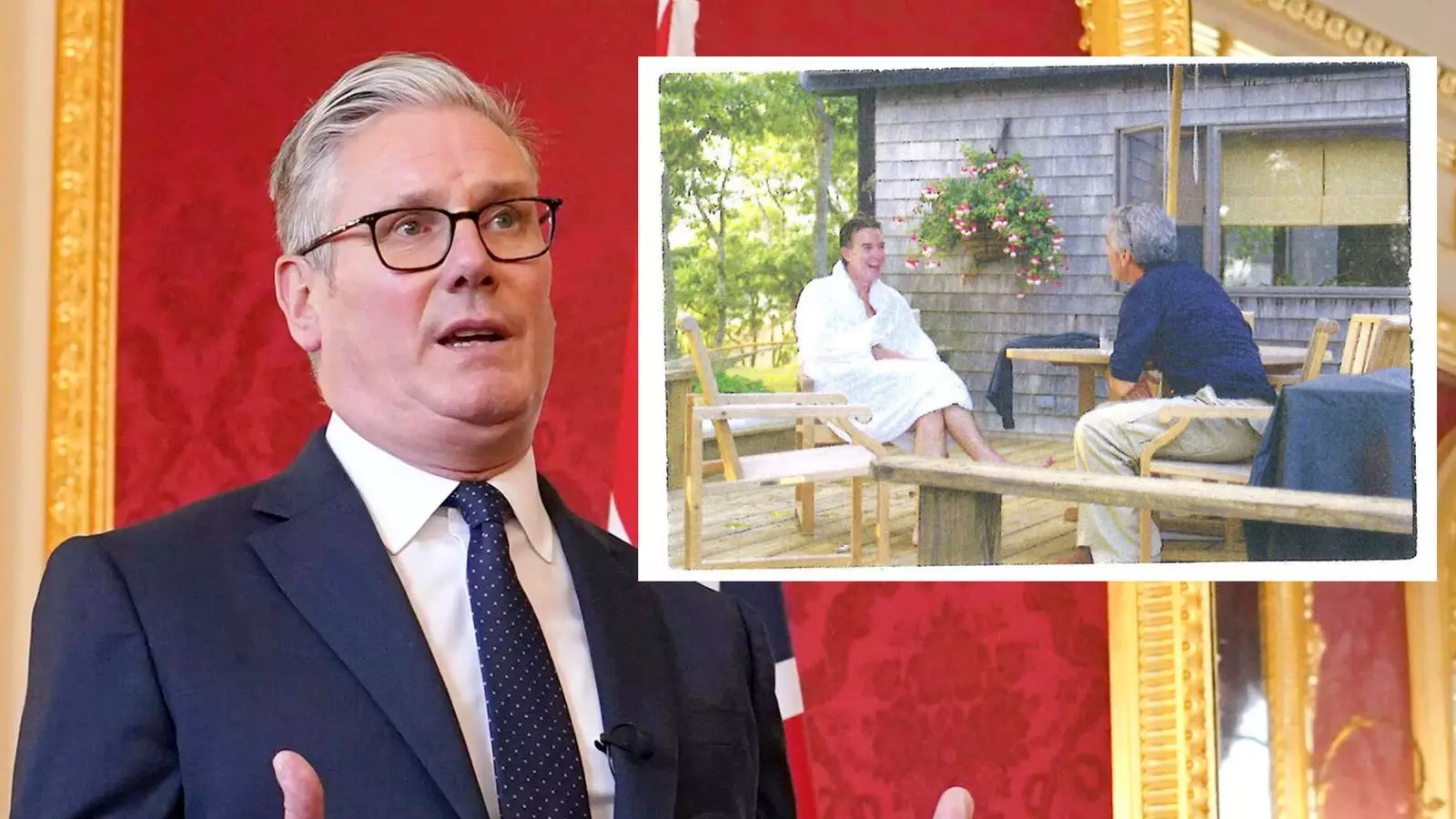In a political landscape increasingly marred by scandal and half-truths, the decision to appoint Lord Peter Mandelson as Britain’s ambassador to the United States underscores a broader issue of accountability—or the disturbing lack thereof—in modern governance. While the appointment was ostensibly a strategic move, it quickly unraveled as evidence surfaced revealing an intimate and troubling relationship with Jeffrey Epstein, a convicted sex trafficker whose notoriety has cast a long shadow over anyone associated with him. Instead of a calculated risk, this felt more like reckless endorsement—a failure to adequately scrutinize those entrusted with representing national interests abroad.
The fallout from this decision is not merely about one individual’s associations; it exposes the deep flaws within vetting procedures and the broader culture of elite privilege. Initially, Lord Mandelson’s admission of having known Epstein might have seemed transparent, yet the sinister details unearthed—particularly the glowing praise and sympathetic emails—paint a picture of someone who prioritized personal connections over ethical boundaries. The fact that he was appointed at all, despite these red flags, suggests a troubling tendency within political circles to overlook moral failings when it suits the upper echelons of power.
This saga has hit the UK government’s reputation like a dumpster fire. It reveals an alarming disregard for transparency, with officials reluctant to disclose crucial vetting information. Such secrecy breeds suspicion and erodes public trust at a time when faith in leadership is desperately needed. The episode forces us to confront unsettling questions: Are the priorities of our political elite aligned with integrity? Or has ambition insidiously eclipsed the moral responsibilities that should underpin governance?
The Spin and Deflection: A Pattern of Damage Control
Prime Minister Keir Starmer’s haphazard response—initially defending Mandelson and then swiftly distancing himself—exemplifies the flawed nature of contemporary political damage control. Instead of a straightforward acknowledgment of oversight, the government’s evasion and muted transparency suggest it perceives the scandal as a threat to broader political stability. By refusing to release more detailed vetting procedures, they perpetuate a culture of opacity that fuels public distrust.
Furthermore, the timing could not be more revealing, with Donald Trump’s impending visit adding a layer of geopolitical messiness. Here we have two world powers embroiled in their own webs of controversy; the UK’s internal chaos serves as a stark reminder that appearances of strength can quickly crumble under the weight of internal corruption. It’s almost poetic—if it weren’t so tragic—that the very institution tasked with enforcing integrity is mired in duplicity.
The resignation of officials like Paul Ovenden further compounds the crisis, revealing a pattern where morally questionable behavior is often met with silence or dismissiveness rather than accountability. This culture of impunity filters down from top-tier politicians to lower-level staff, eroding the moral fabric of political institutions. It’s a wake-up call that leadership failures aren’t isolated incidents but symptomatic of systemic rot.
What This Means for Democratic Credibility
This scandal underscores a pressing need for reform rooted in genuine transparency and ethical accountability. The public’s patience with politically convenient silence has run thin. Trust in institutions cannot be restored by mere lip service or superficial investigations; it demands concrete, measurable changes that prevent similar lapses in the future.
Center-leaning liberals should see this as an urgent call to action. It’s essential to advocate for stronger vetting processes, clearer conflict-of-interest policies, and independent oversight that is genuinely independent. Democracy thrives on accountability, and complacency only feeds the cynicism that currently plagues political engagement. In light of these revelations, complacency becomes a luxury no longer afforded to those who value integrity in governance.
The Mandelson debacle is ultimately a reflection of a broader malaise within political culture—one where power often shields its own, and moral standards are bent or broken for strategic advantage. To move forward, the emphasis must shift from reactive damage control to proactive reform, ensuring that leaders are held to standards that reflect both legality and morality. That’s the only way to begin rebuilding the battered trust that recent events have so profoundly damaged.


Leave a Reply